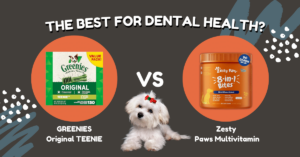As much as we love our furry friends, some of us can’t be around them without experiencing sneezing, runny nose, itchy eyes, and other allergy symptoms. Fortunately, there’s a solution for dog lovers who are allergic: hypoallergenic dogs. In this article, we’ll explore what hypoallergenic dogs are, how they differ from regular dogs, and which breeds are considered hypoallergenic.
If you suffer from allergies but still want to share your home with a canine companion, you may want to consider a hypoallergenic dog. These breeds are designed to minimize the amount of allergens that they produce, making them a great choice for allergy sufferers. However, it’s important to note that hypoallergenic dogs don’t guarantee that you won’t have an allergic reaction, as everyone’s allergies are different. But they can certainly help reduce your symptoms.
What are Hypoallergenic Dogs?
Hypoallergenic dogs are breeds that produce fewer allergens than other dogs. All dogs produce allergens to some degree, but hypoallergenic dogs have a coat that sheds less, producing fewer allergens. It’s important to note that hypoallergenic dogs aren’t completely allergen-free, but they are a better option for allergy sufferers than other breeds.
How do Hypoallergenic Dogs Differ from Regular Dogs?
Hypoallergenic dogs have a coat that sheds less, which means they produce fewer allergens. They also have a different type of coat than regular dogs, which helps reduce allergens. Hypoallergenic dogs also have fewer dander and saliva proteins, which are the main causes of allergies in humans.
Which Breeds are Considered Hypoallergenic?
There are many breeds that are considered hypoallergenic, although some may produce more allergens than others. Here are some popular hypoallergenic breeds to consider:
Poodle: Poodles are one of the most popular hypoallergenic breeds. They have a curly coat that sheds minimally, producing fewer allergens.
Bichon Frise: Bichon Frises are small, fluffy dogs that produce less dander than other breeds. They are also very social and great with kids.
Portuguese Water Dog: Portuguese Water Dogs have a thick, curly coat that produces fewer allergens. They are also known for being great swimmers.
Maltese: Maltese dogs have a long, silky coat that sheds minimally. They are also very gentle and great with children.
Schnauzer: Schnauzers have a wiry, hypoallergenic coat that sheds minimally. They are also very intelligent and easy to train.
FAQs
Q: Can hypoallergenic dogs still cause allergies?
A: Yes, hypoallergenic dogs can still cause allergies, as everyone’s allergies are different. However, they are a better option for allergy sufferers than other breeds.
Q: Are hypoallergenic dogs more expensive?
A: Hypoallergenic dogs can be more expensive than other breeds, but it depends on the breed and the breeder. It’s important to do your research and find a reputable breeder.
Q: Do hypoallergenic dogs require special grooming?
A: Yes, hypoallergenic dogs require regular grooming to maintain their coat and reduce allergens. This









